Ballots and bullets: Mexico's bloody election campaign
He is one of 48 candidates murdered this campaign season 28 who were killed during the primary campaigns
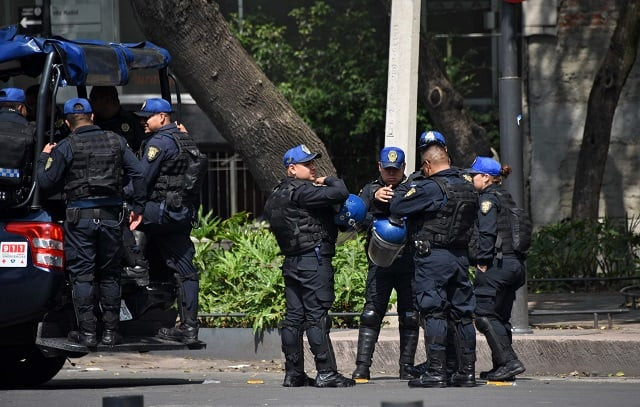
Policemen patrol the streets of Mexico City on June 29, 2018, ahead of the upcoming July 1 presidential election. PHOTO: AFP
Fernando Puron, who was running for Congress in the northern state of Coahuila, is one of 136 politicians murdered since candidate registration for Sunday's elections in Mexico opened in September, according to the consulting firm Etellekt.
It is by far the bloodiest Mexican campaign on record, as the violence gripping the country has exploded massively into the political world.
Puron, 43, had just left a June 8 debate in which he had vowed to crack down on drug cartels, citing his record fighting the brutal Zetas cartel as mayor of the city of Piedras Negras when he stopped outside to pose for a picture with a supporter.
Kidnap charge spotlights justice divide in Mexican election
Grainy footage from a security camera shows how another man watched the pair from a distance, then walked up to Puron, put a gun to the back of his head, and pulled the trigger, walking off as the candidate crumpled to the ground.
He is one of 48 candidates murdered this campaign season 28 who were killed during the primary campaigns and 20 during the general election campaign, according to Etellekt.
At the last national elections, in 2012, nine politicians and one candidate were murdered.
The new figure shows the lengths to which the country's powerful drug cartels are going to place their own allies in local government, in a bid for territory, government resources and soft policing, analysts say.
The new law of local politics in Mexico is that "you have to obey orders from the hitman or capo" who rules your turf, said consultant Luis Carlos Ugalde, former head of Mexico's federal electoral authority.
"If they think a politician's not going to work with them, negotiate, back down, then they kill him,".
This political violence is part of the larger bloodbath harrowing Mexico, which has left more than 200,000 people murdered since the government deployed the army to fight the cartels in 2006.
That includes a record 25,339 murders last year.
Violence is a major issue in the campaign, and one that has hit hard across the country whether in the chic resort region of Los Cabos, on the Baja California peninsula, or in places mired in the poverty that affects more than 50 million of Mexico's 120 million people.
The country has grown used to seeing burned and mutilated bodies abandoned on highways, police and soldiers attacked by heavily armed hitmen, or headless bodies floating in rivers.
It is often hard to decipher why a given politician was killed.
Some, like Puron, appear to have been eliminated for fighting the cartels.
Others appear to have been taken out for striking a deal with a rival cartel, and still others have been killed in crimes that, like so many in Mexico, remain murky.
"We should be asking ourselves how many candidates are being murdered because they're mixed up in organised crime. That's the major problem," said Ugalde.
The director of Etellekt, Ruben Salazar, is critical of the "failed" strategy of the government's drug war, which has only fragmented the cartels, he said.
Journalist found dead in 'pool of blood' at home in northern Mexico
"An infinitude of criminal cells emerged, and now they are waging a constantly escalating battle for control of territory and trafficking routes," he said.
Sergio Aguayo, a security expert at El Colegio de Mexico, said the country faces a deep-rooted problem of "complicity between public officials and criminals."
That poses a severe problem for Mexican democracy, regardless of how Sunday's elections turn out.
"I can't think of another country in the world where organised crime has achieved as much power as it has in Mexico," Aguayo said.

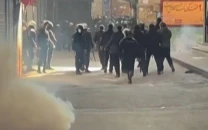
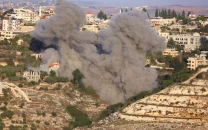


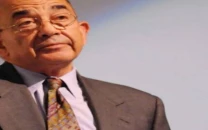
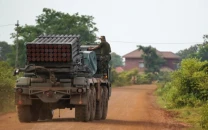












COMMENTS
Comments are moderated and generally will be posted if they are on-topic and not abusive.
For more information, please see our Comments FAQ